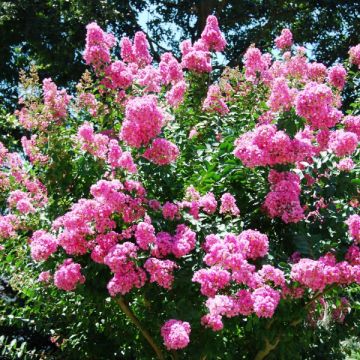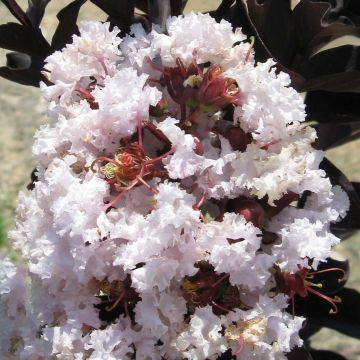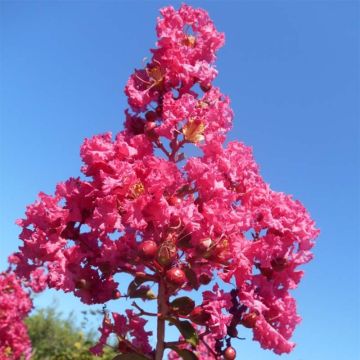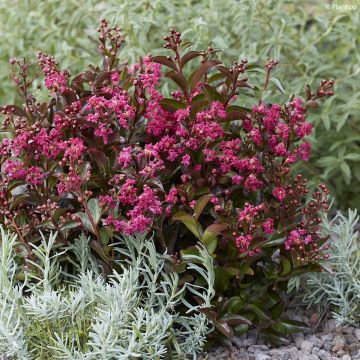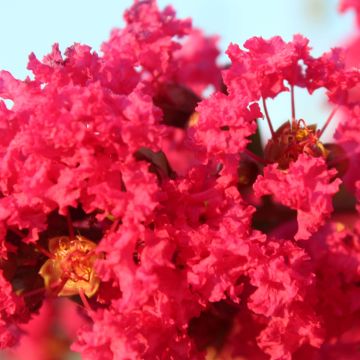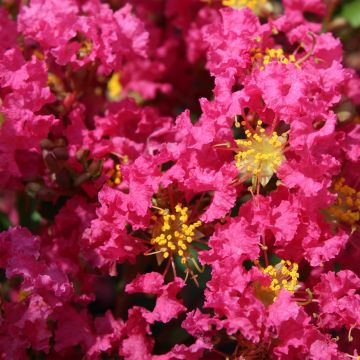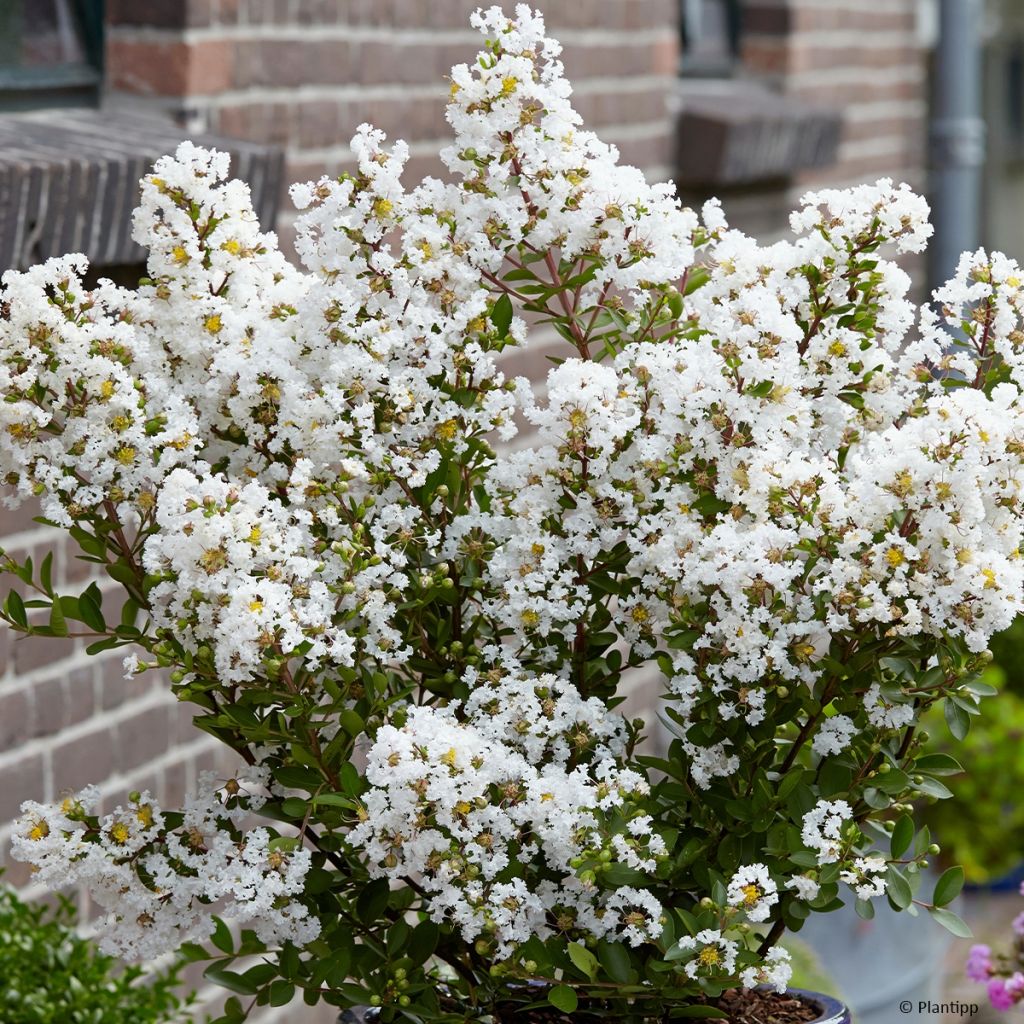

Lagerstroemia indica With Love Virgin - Crape Myrtle
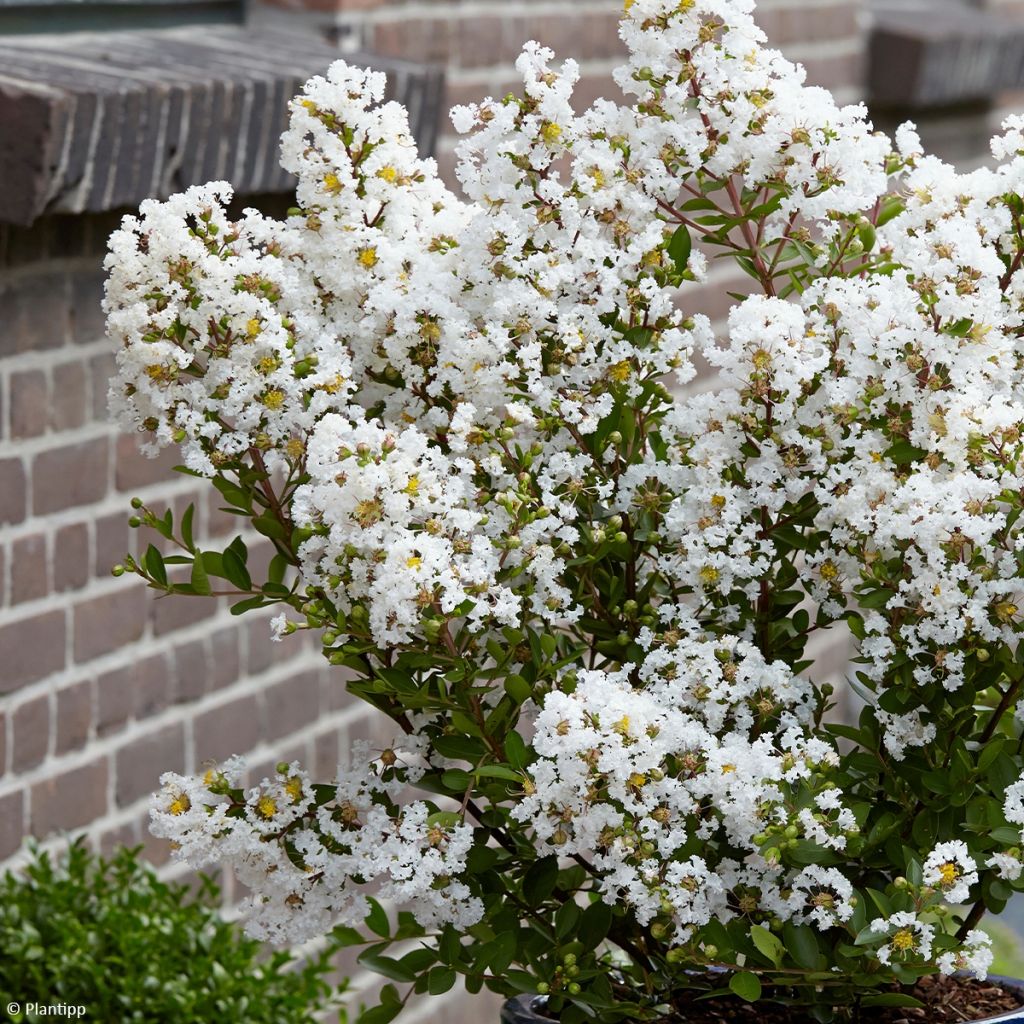

Lagerstroemia indica With Love Virgin - Crape Myrtle
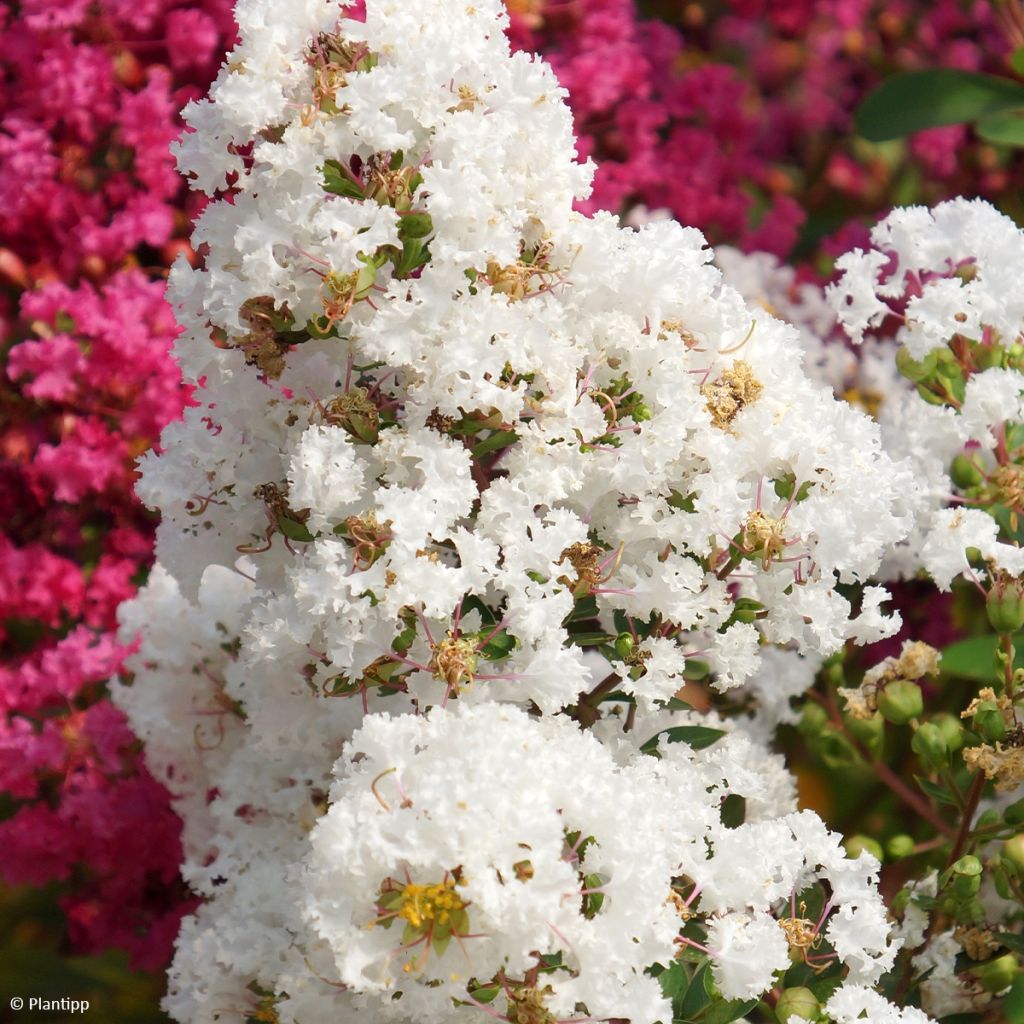

Lagerstroemia indica With Love Virgin - Crape Myrtle
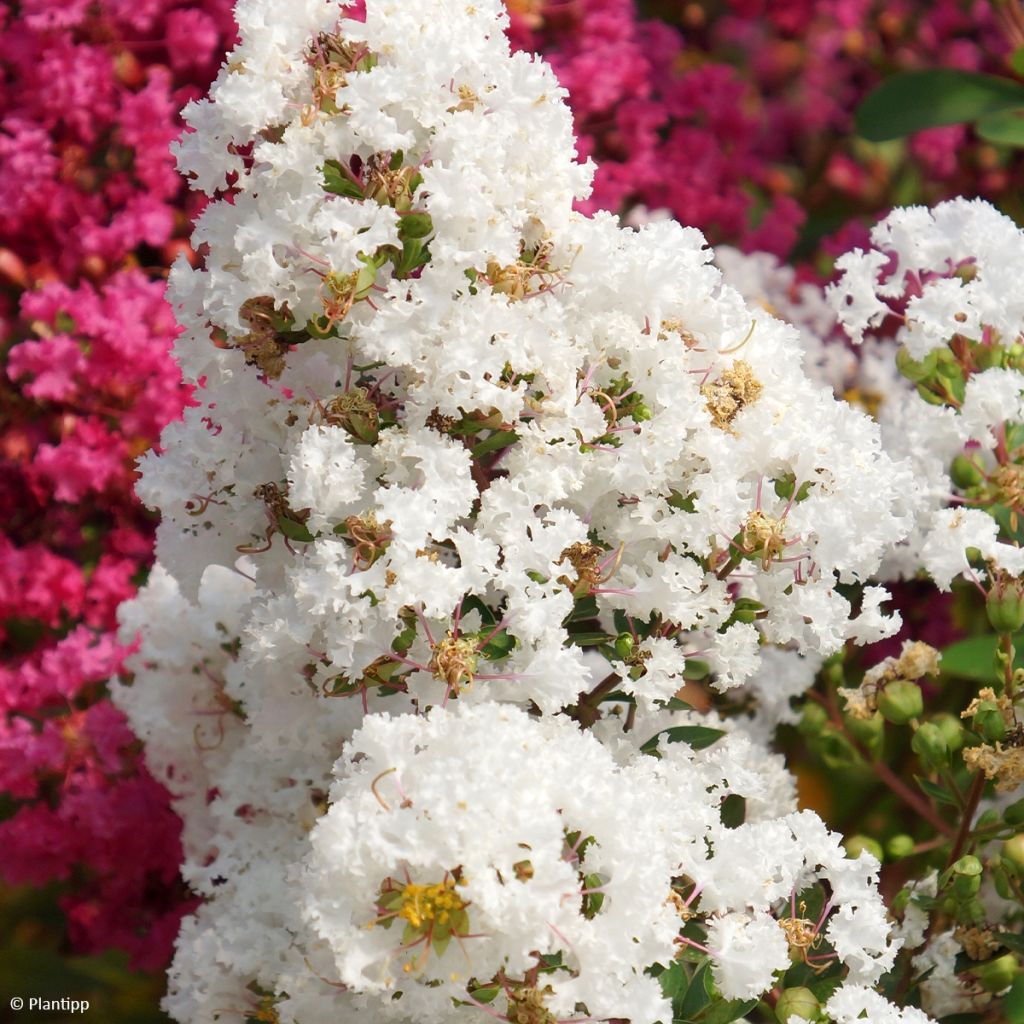

Lagerstroemia indica With Love Virgin - Crape Myrtle


Lagerstroemia indica With Love Virgin - Crape Myrtle
Lagerstroemia indica With Love Virgin - Crape Myrtle
Lagerstroemia indica VIRGIN WITH LOVE® PBR
Crape Myrtle, Crepe Myrtle, Indian Lilac
This item cannot be shipped to the selected country
Delivery charge from €5.90
Delivery charge from €5.90
Delivery charge from €5.90
Delivery to Corse prohibited
More information
Schedule delivery date,
and select date in basket
This plant carries a 24 months recovery warranty
More information
We guarantee the quality of our plants for a full growing cycle, and will replace at our expense any plant that fails to recover under normal climatic and planting conditions.
From €5.90 for pickup delivery and €6.90 for home delivery
Express home delivery from €8.90.
From €5.90 for pickup delivery and €6.90 for home delivery
Express home delivery from €8.90.
From €5.90 for pickup delivery and €6.90 for home delivery
Express home delivery from €8.90.
Delivery to Corse prohibited: UE law prohibits the import of this plant from mainland France to Corse as part of the fight against Xylella fastidiosa. Please accept our sincere apologies.
More information
Does this plant fit my garden?
Set up your Plantfit profile →
Description
The Lagerstroemia indica 'Virgin' ('Milabla') brings its pure white to the excellent With Love ® series which brings together truly compact Indian lilacs with generous summer flowering, highly resistant to frost, perfect for ornamental pots and small gardens. This one is adorned with numerous fluffy clusters, to the point that it seems covered in snow in the middle of summer. Summer Lilacs are also appreciated for their bark, richly coloured and ornamental all year round, as well as their beautiful autumn colours. These bushes like heat but appreciate a little bit of moisture in the summer to support their flowering. This one is easy to grow in many regions.
Lagerstroemia indica With Love Virgin, obtained in Italy, is part of a series of hybrids carefully selected for their compactness, early flowering, floribundity, and hardiness. The 'With Love' Indian lilacs come in pale pink (Babe), mauve purple (Eternal), bright pink (Girl), pure white (Virgin), and dark pink (Kiss).
The With Love Virgin Indian lilac belongs to the Lythraceae family, just like the Lagerstroemia indica from which it originates. It is a small plant, reaching approximately 70 cm (27.6 in) in height and 40 cm (15.7 in) in width at maturity. Its growth is rather slow. It starts flowering in July and continues until September. The large inflorescences, in branched clusters, are composed of numerous small flowers carried by thin pedicels. Each flower has five petals with very wavy edges and a texture reminiscent of crepe. They are gathered in large, dense panicles at the ends of this year's branches. This flowering attracts bees and butterflies.
In 'Virgin', the floral buds open widely into immaculate white flowers. The foliage emerges bronze in spring, then becomes bright green and glossy. It is composed of ovate leaves that take on orange or coppery hues in autumn, depending on the climate, before falling. Finally, and to finish beautifully, its bark is decorative: smooth, beige streaked with grey and reddish-brown, peeling off in coloured patches (cinnamon, faded red, old rose, cream).
Indian Lilacs traditionally adorn the gardens of humid and warm areas, but, in their improved forms, they deserve to be acclimatized in colder areas by carefully choosing the variety and its location. Good hardiness and vigour will allow this with the new varieties of the With Love series. It looks good in a low shrub bed or in a small flowering hedge with a mix of varieties and colours, or emerging from a mound of perennials. In autumn, it accompanies asters as colourful as itself. In a large pot on the terrace, it puts on a show while summer flowering fades.
Note: Karl Von Linne named this tree in tribute to his friend Magnus Von Lagestroem (1696 - 1759), who had sent it to him from India for identification. Originally, this tree was used to decorate Chinese temples. We would like to point out that this tree produces fruits with narcotic effects if ingested.
The creation of varieties in Indian Lilacs has long been a French speciality, particularly in the southwest, with the two main hybridizers located in the Périgord, but also in Quercy. Other enthusiasts have embarked on the adventure, such as Christian Gaurrat and Antoine Scrive in the Landes.
Report an error about the product description
Lagerstroemia indica With Love Virgin - Crape Myrtle in pictures
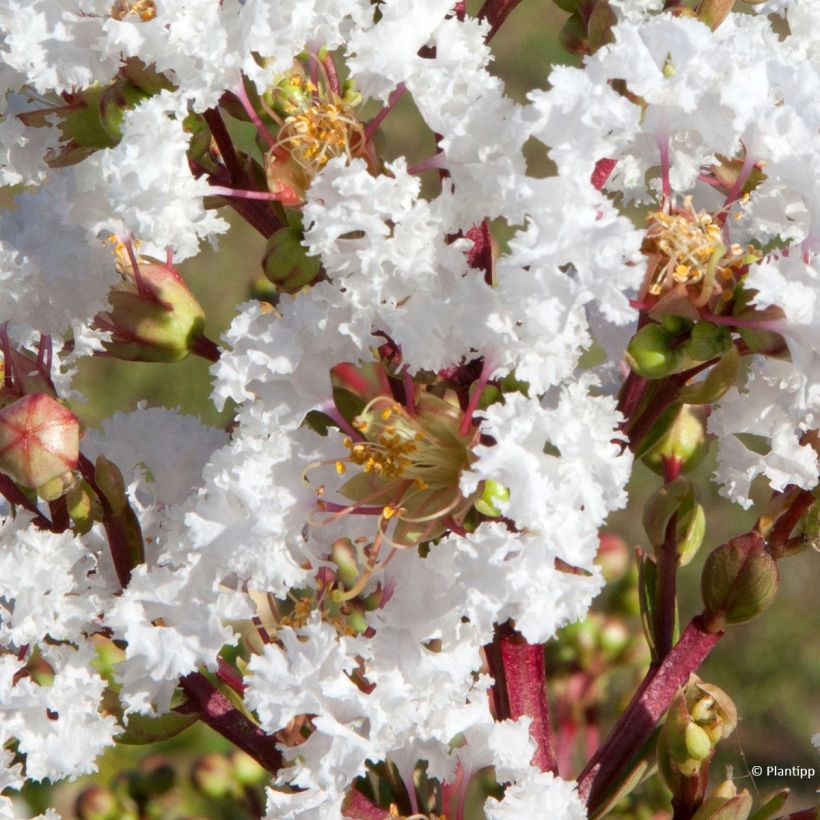

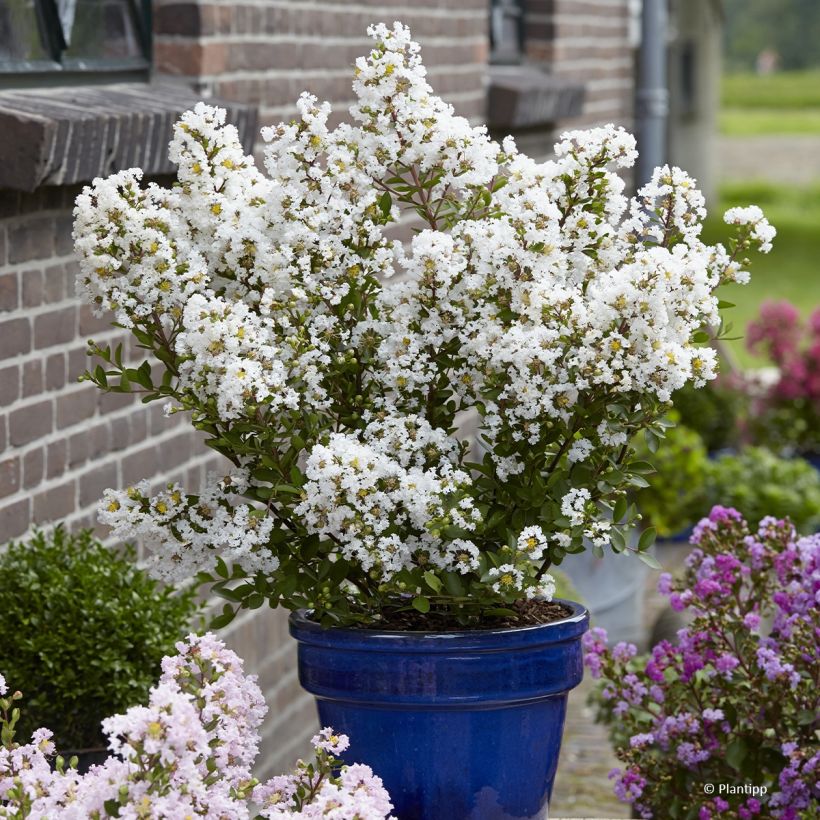

Plant habit
Flowering
Foliage
Botanical data
Lagerstroemia
indica
VIRGIN WITH LOVE® PBR
Lythraceae
Crape Myrtle, Crepe Myrtle, Indian Lilac
Cultivar or hybrid
Other Lagerstroemia - Crape Myrtle
Planting and care
We recommend planting Lagerstroemia indica 'With Love Virgin' in spring, when the risk of frost has passed, in a very sunny and sheltered location, in a rich, fairly moist, well-drained soil that is preferably slightly acidic, neutral, or low in lime. It will benefit from the addition of compost and a thick layer of dead leaves, especially during the first two winters in cold regions. Prune the flowering branches very short in February-March, leaving only 4 to 6 buds to balance its habit and stimulate the growth of future flower-bearing branches. If necessary, remove weak shoots and poorly positioned branches.
Planting period
Intended location
Care
-
, onOrder confirmed
Reply from on Promesse de fleurs
Haven't found what you were looking for?
Hardiness is the lowest winter temperature a plant can endure without suffering serious damage or even dying. However, hardiness is affected by location (a sheltered area, such as a patio), protection (winter cover) and soil type (hardiness is improved by well-drained soil).

Photo Sharing Terms & Conditions
In order to encourage gardeners to interact and share their experiences, Promesse de fleurs offers various media enabling content to be uploaded onto its Site - in particular via the ‘Photo sharing’ module.
The User agrees to refrain from:
- Posting any content that is illegal, prejudicial, insulting, racist, inciteful to hatred, revisionist, contrary to public decency, that infringes on privacy or on the privacy rights of third parties, in particular the publicity rights of persons and goods, intellectual property rights, or the right to privacy.
- Submitting content on behalf of a third party;
- Impersonate the identity of a third party and/or publish any personal information about a third party;
In general, the User undertakes to refrain from any unethical behaviour.
All Content (in particular text, comments, files, images, photos, videos, creative works, etc.), which may be subject to property or intellectual property rights, image or other private rights, shall remain the property of the User, subject to the limited rights granted by the terms of the licence granted by Promesse de fleurs as stated below. Users are at liberty to publish or not to publish such Content on the Site, notably via the ‘Photo Sharing’ facility, and accept that this Content shall be made public and freely accessible, notably on the Internet.
Users further acknowledge, undertake to have ,and guarantee that they hold all necessary rights and permissions to publish such material on the Site, in particular with regard to the legislation in force pertaining to any privacy, property, intellectual property, image, or contractual rights, or rights of any other nature. By publishing such Content on the Site, Users acknowledge accepting full liability as publishers of the Content within the meaning of the law, and grant Promesse de fleurs, free of charge, an inclusive, worldwide licence for the said Content for the entire duration of its publication, including all reproduction, representation, up/downloading, displaying, performing, transmission, and storage rights.
Users also grant permission for their name to be linked to the Content and accept that this link may not always be made available.
By engaging in posting material, Users consent to their Content becoming automatically accessible on the Internet, in particular on other sites and/or blogs and/or web pages of the Promesse de fleurs site, including in particular social pages and the Promesse de fleurs catalogue.
Users may secure the removal of entrusted content free of charge by issuing a simple request via our contact form.
The flowering period indicated on our website applies to countries and regions located in USDA zone 8 (France, the United Kingdom, Ireland, the Netherlands, etc.)
It will vary according to where you live:
- In zones 9 to 10 (Italy, Spain, Greece, etc.), flowering will occur about 2 to 4 weeks earlier.
- In zones 6 to 7 (Germany, Poland, Slovenia, and lower mountainous regions), flowering will be delayed by 2 to 3 weeks.
- In zone 5 (Central Europe, Scandinavia), blooming will be delayed by 3 to 5 weeks.
In temperate climates, pruning of spring-flowering shrubs (forsythia, spireas, etc.) should be done just after flowering.
Pruning of summer-flowering shrubs (Indian Lilac, Perovskia, etc.) can be done in winter or spring.
In cold regions as well as with frost-sensitive plants, avoid pruning too early when severe frosts may still occur.
The planting period indicated on our website applies to countries and regions located in USDA zone 8 (France, United Kingdom, Ireland, Netherlands).
It will vary according to where you live:
- In Mediterranean zones (Marseille, Madrid, Milan, etc.), autumn and winter are the best planting periods.
- In continental zones (Strasbourg, Munich, Vienna, etc.), delay planting by 2 to 3 weeks in spring and bring it forward by 2 to 4 weeks in autumn.
- In mountainous regions (the Alps, Pyrenees, Carpathians, etc.), it is best to plant in late spring (May-June) or late summer (August-September).
The harvesting period indicated on our website applies to countries and regions in USDA zone 8 (France, England, Ireland, the Netherlands).
In colder areas (Scandinavia, Poland, Austria...) fruit and vegetable harvests are likely to be delayed by 3-4 weeks.
In warmer areas (Italy, Spain, Greece, etc.), harvesting will probably take place earlier, depending on weather conditions.
The sowing periods indicated on our website apply to countries and regions within USDA Zone 8 (France, UK, Ireland, Netherlands).
In colder areas (Scandinavia, Poland, Austria...), delay any outdoor sowing by 3-4 weeks, or sow under glass.
In warmer climes (Italy, Spain, Greece, etc.), bring outdoor sowing forward by a few weeks.

































